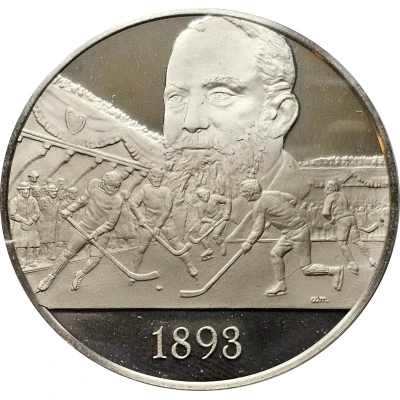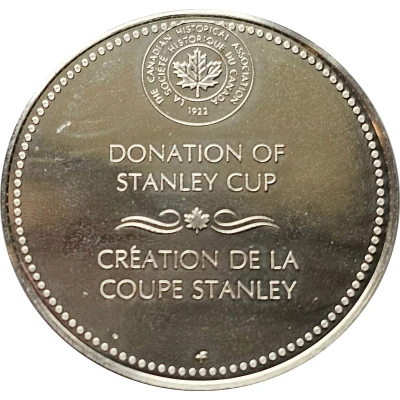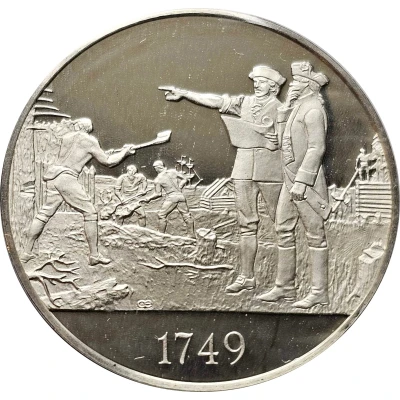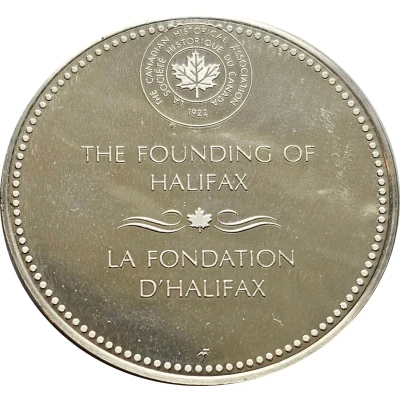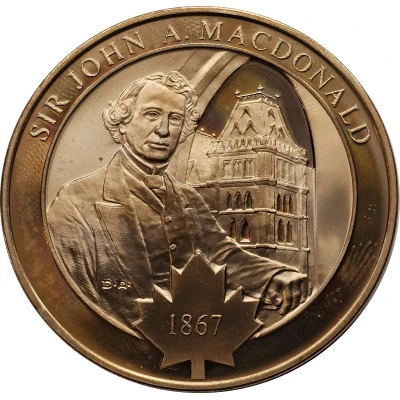
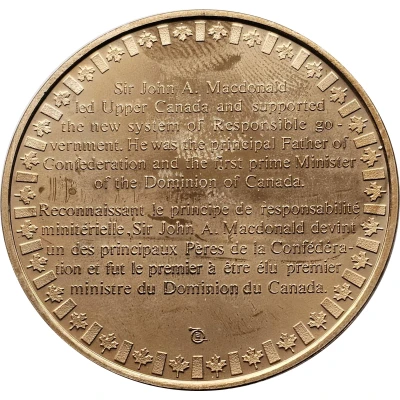

Medal - Medallic History of Canada (Sir John A. MacDonald) ND
| Bronze | 34 g | 44 mm |
| Location | Canada |
|---|---|
| Queen | Elizabeth II (1952-2022) |
| Type | Medals › Commemorative medals |
| Composition | Bronze |
| Weight | 34 g |
| Diameter | 44 mm |
| Shape | Round |
| Technique | Milled |
| Orientation | Medal alignment ↑↑ |
| Updated | 2024-11-12 |
| Numista | N#429269 |
|---|---|
| Rarity index | 97% |
Reverse
Script: Latin
Lettering:
Sir John A. Macdonald
led Upper Canada and supported
the new system of Responsible go-
vernment. He was the principal Father of
Confederation and the first prime Minister
of the Dominion of Canada.
Reconnaissant le principe de responsabilité
minitérielle, Sir John A. Macdonald devint
un des principaux Pères de la Confédéra-
tion et fut le premier à être élu premier
ministre du Dominion du Canada.
Wellings Mint Mark
Edge
Plain with text
Lettering: FRANKLIN BRONZE, Wellings Mint Mark, 72, P
Comment
This was part of a series of 100 historical medals in 2 volumes of 50 made by the Wellings Mint (Wellings Mint was assimilated by the Franklin Mint in 1973). There was a limited run of around 1000 I believe, which is why the edge is numbered.
Made in bronze and sterling silver versions.
Sir John Alexander Macdonald GCB PC QC ( 10 or 11 January 1815 – 6 June 1891) was the first prime minister of Canada, serving from 1867 to 1873 and from 1878 until his death in 1891. He was the dominant figure of Canadian Confederation, and had a political career that spanned almost half a century.
Macdonald was born in Scotland; when he was a boy his family immigrated to Kingston in the Province of Upper Canada (today in eastern Ontario). As a lawyer, he was involved in several high-profile cases and quickly became prominent in Kingston, which elected him in 1844 to the legislature of the Province of Canada. By 1857, he had become premier under the colony's unstable political system. In 1864, when no party proved capable of governing for long, Macdonald agreed to a proposal from his political rival, George Brown, that the parties unite in a Great Coalition to seek federation and political reform. Macdonald was the leading figure in the subsequent discussions and conferences, which resulted in the British North America Act and the establishment of Canada as a nation on 1 July 1867.
